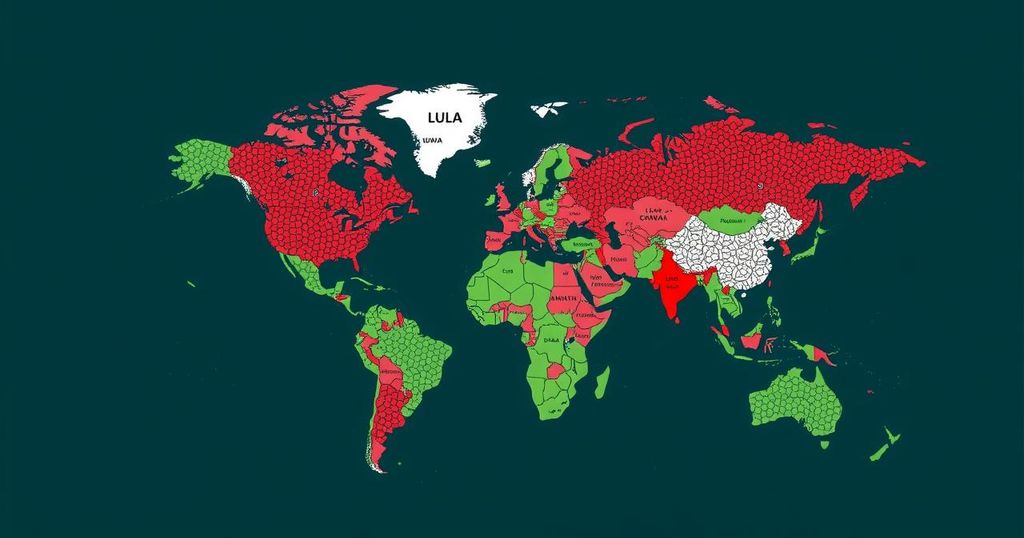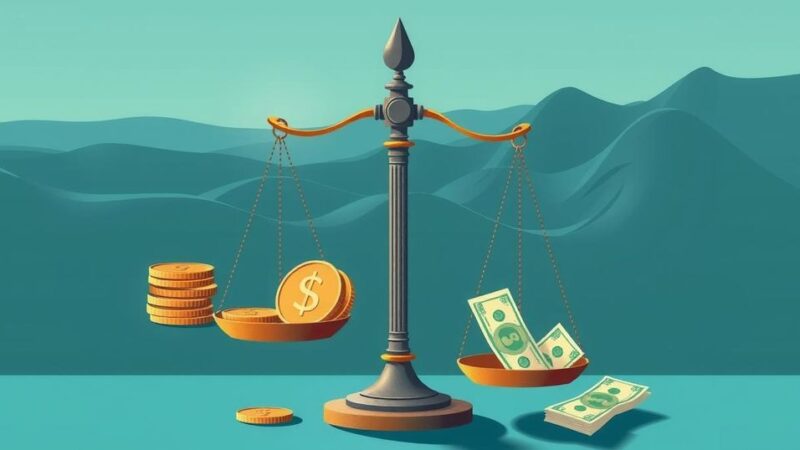Brazilian President Luiz Inácio da Silva urged G20 developed nations to advance their climate neutrality targets from 2050 to 2040 or 2045 during the summit in Rio de Janeiro. He emphasized the urgency of addressing climate change, the principle of differentiated responsibilities, and the need for global cooperation in funding climate initiatives. Lula called for heightened ambition in Nationally Determined Contributions and highlighted Brazil’s commitment to renewable energy and forest conservation.
Brazilian President Luiz Inácio da Silva called upon developed nations within the G20 to expedite their climate neutrality targets, advocating for an adjustment from 2050 to either 2040 or 2045. Speaking during the G20 Summit in Rio de Janeiro, President Lula emphasized the need for increased commitments due to the urgency of the climate crisis. He underscored that while progress on climate initiatives has been made, much more is required, stating, “Even if we’re not moving at the same speed, we can all take a step forward.” He highlighted the principle of differentiated responsibilities, urging wealthy nations to acknowledge their historical contributions to greenhouse gas emissions. Lula recalled the significance of the 1992 Earth Summit in Rio, which laid the groundwork for international environmental agreements, and lamented that despite efforts from previous accords, the effects of climate change have intensified. He pointed out that G20 countries are responsible for 80% of global emissions and advocated for the establishment of a Task Force for Global Mobilization against Climate Change to facilitate cooperative solutions. At the summit, Lula reaffirmed Brazil’s commitment to achieving ambitious Nationally Determined Contributions (NDCs), emphasizing that these must align with the goal of limiting global temperature increases to 1.5°C. He noted Brazil’s transition to renewable energy sources and stressed the essential role of forest conservation in mitigating emissions. Furthermore, Lula reinforced the need for global cooperation in funding climate initiatives, criticizing the allocation of resources to military expenditures instead of combating climate change. He warned that the upcoming COP30 conference in Brazil is a critical opportunity to enact decisive climate action, expressing hope for the establishment of a unified Climate Change Council at the United Nations to streamline efforts in addressing climate issues. He concluded his address by inspiring courage and commitment toward environmental preservation, stating, “Hope is reborn with every commitment and act of courage in defense of life and the preservation of the conditions in which it was given to us.”
The call to action made by President Lula at the G20 Summit reflects a broader movement towards greater accountability and ambition in climate policy, particularly among developed nations that significantly contribute to global emissions. As a key participant in international climate discussions, Brazil seeks to leverage its position to advocate for the acceleration of climate goals and highlight the critical role of systematic collaboration worldwide. Lula’s remarks concentrate on the principle of differentiated responsibilities wherein developed nations—having historically contributed more to the crisis—must lead with credible commitments to support global climate initiatives. The urgency of these discussions is underscored by accelerating climate events globally, prompting a reassessment of long-term targets and immediate actions.
In summary, President Lula of Brazil urged G20 nations to advance their climate neutrality commitments as part of a collective response to the escalating climate crisis. He emphasized the responsibilities of developed countries and the necessity of immediate action to mitigate the impact of climate change. The President’s call for increased ambition in Nationally Determined Contributions and the establishment of a cooperative framework represents a pivotal shift towards a more unified and proactive approach in global climate governance. Lula’s leadership highlights the dire need for international collaboration to ensure sustainable environmental stewardship and systemic change in the face of climate challenges.
Original Source: en.mercopress.com






